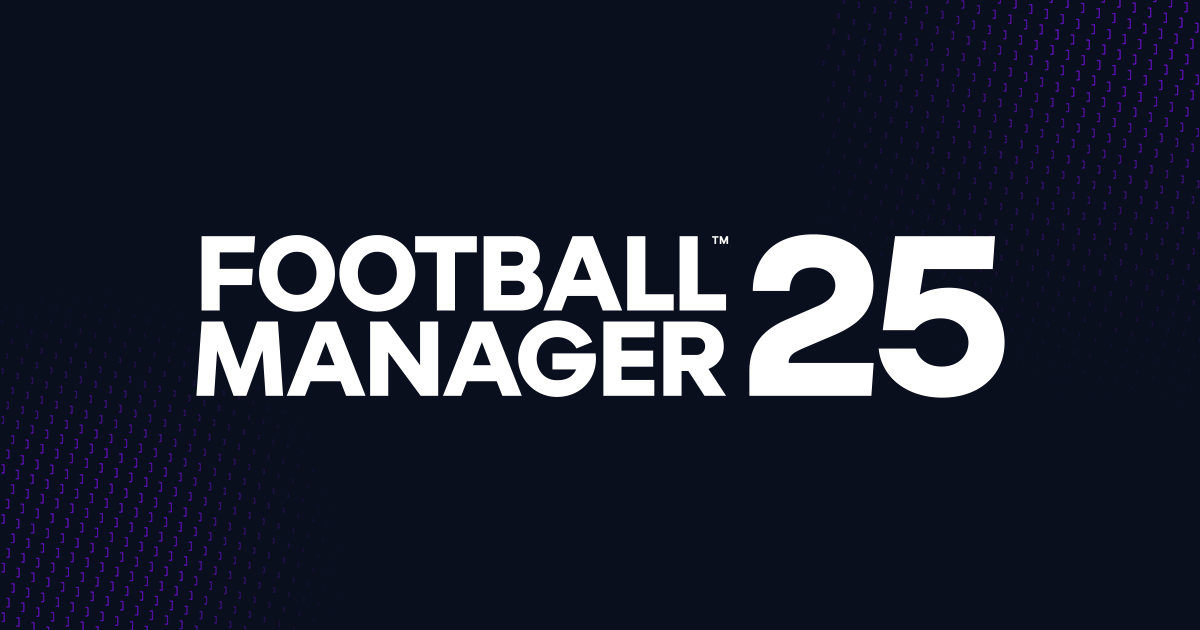Right. I think there are a lot of people who would be happy to give up something, but would need big societal changes first. Like, giving up driving a car, but would need cities to be designed more like Europe where it’s possible to get by without a car. Or, living in a more efficient high-rise apartment building vs. a less efficient detached house, but would need building codes and standards to be better so they weren’t constantly being annoyed by a noisy neighbour, or having to put up with smells from other apartments.
- 11 Posts
- 2.35K Comments
Ok, you can get the stuff near the north pole.
Not only that, but all 8.5 billion would also need to be willing to stop any “lifestyle inflation”. It’s not just about accepting it for a day, it’s about adjusting to that being the norm for themselves and for their kids into the foreseeable future.
It’s one of those things that works in movies because it’s something you can get away with if you’re incredibly attractive. There’s a whole stock images category involving girls licking their fingers, mostly in a seductive style. But, in the real world, it’s something you do with your husband or long-term partner, not a random cow-orker.
“Touching his food” can run the gamut between:
Take one of his potato chips and eat it
to
Stick my thumb in his soup
If a friend or family member took one of my potato chips and ate it, I’d probably be fine with it. At worst I’d be a little annoyed. If an acquaintance or cow-orker did that it would be a little more strange, but not the end of the world. But, the other end of the spectrum is much weirder.
Grabbing a potato chip, if done carefully, will mean not touching anything else. Any dirt or germs on the toucher’s hands aren’t going to get spread around the rest of the food, but touching a liquid or something with sauce on it is different. IMO, touching someone’s pasta is definitely on the germ-spreading end of the scale.

 3·1 day ago
3·1 day agoThis is how I found out that Chelsea won. This is how I knew the whole event was over. I didn’t watch any of it, I don’t think I even saw any highlights.
I just hope that the whole thing dies. It’s an abomination. The players need a time to rest between seasons. But, FIFA is using it as a way to generate more money and maybe even a sneaky way to create the long-dreaded superleague.

 3·2 days ago
3·2 days agoCanada and Mexico can try, but geographically it just doesn’t make any sense. They can (and should) try to reduce their reliance on the US, and try to be in a stronger position for any future negotiations. But, it simply doesn’t make any economic sense to cut out the biggest trading partner, across 2 of the biggest borders in the world.
For Canada in particular, there’s really no alternative. Canada’s entire population is near the US border, and there’s no other country that Canada can trade with without international shipping.

 0·2 days ago
0·2 days agoThe wording of the poll is designed so that everyone will vote no.
The problem is that AI opponents will think it means “no AI generated images” but AI enthusiasts will think it means “only high quality AI generated images”. It might be a good idea to clarify what the rule means before people get upset.

 0·2 days ago
0·2 days agoYou’re a cult leader. You get kicked off mainstream social media for inciting violence. You create your own social media site so you can keep “tweeting”. Only your hardcore cult members also create accounts on that social media site, your detractors stay far away. And yet, you say things so unhinged that you still get ratioed on your own site by your own cultists.
I don’t know if this Epstein stuff is something that will eventually destroy Trump and the MAGA cult, but so far it’s looking good.

 0·2 days ago
0·2 days agoHOW MANY TIMES DO i HAVE TO TELL YOU, THERE ARE NO EPSTEIN FILES, Also, don’t forget the Epstein files were created by Hillary Clinton and Obama!

 2·2 days ago
2·2 days agoand let them be their self governing island to themselves.
Doesn’t really work for Canada or Mexico.
See, that’s the thing. If you take a charitable interpretation of what he’s attempting to say, it still doesn’t make sense.
You paste a full file from a project into Grok and it “will fix it for you!”
If you gave me, a human, a file and asked me to fix it, before I did anything else, I’d ask you “ok, what’s wrong with it?” Any human who didn’t and just dove right into trying to fix it would often just give you a “working” program that still didn’t do what you actually wanted. Sure, sometimes the answer is obvious, it doesn’t compile, or it generates unexpected errors. But, often when you hear the answer, the response is “ah, well, I think you’ve overlooked something when thinking about the problem, have you considered X and Y?”
Yeah, they even show a periodic table. On that row, Uranium is just about the safest “rock”.
It’s even mostly lickable.

 1·4 days ago
1·4 days agoFunding a foreign assassination attempt will only unite all of the right-of-center and take away some of support of “centrist”/“conservative” democrats.
If it’s done in full seriousness, sure. But, the left can play the same game the right does. “Haha, it’s a joke, I just donated $10 to the kill Trump GoFundMe, isn’t that hilarious! What’s wrong, MAGA? Triggered? What snowflakes! Relax, it isn’t real, it’s just a joke. OR IS IT!? Haha, only joking, you thought I was serious. You MAGAs just can’t take a joke!”
Yeah man, they’re completely nuts!
I’ve been thinking about these agents, and what it all means.
In Ontario, Canada, the law about police identifying themselves is really straightforward:
- (1) A police officer shall not deliberately conceal any of the following information that is part of their uniform or is otherwise required to be displayed:
- The officer’s name.
- The officer’s badge number.
- The name of the officer’s police service.
(2) While acting in the course of their duties, a police officer shall, upon request, provide their name, badge number and the name of their police service to any member of the public in a manner reasonable in the circumstances that allows the member of the public to identify the officer, unless the officer has reason to believe that doing so would undermine the safety of an individual.
https://www.ontario.ca/laws/regulation/r23407
In France “Police officers must clearly display their identification number badge”. In Germany “you have the right to ask for the police officer’s identity card and to write down their details”
But, apparently in California the rules are a lot weaker:
“Any uniformed peace officer shall wear a badge, nameplate, or other device which bears clearly on its face the identification number or name of the officer.” But, this allows for them to wear a badge or nameplate, and then wear something over top of it, or obscuring it. In addition “Neither California nor federal law explicitly mandates that officers must identify themselves.” I mean, that’s pretty fucked up to begin with.
I can understand that because doxxing is relatively easy, a criminal might find out a cop’s home address if the officer has to give their full name on request. So, maybe in 2025 an officer giving out their full name might be a legitimate problem, especially if they have an unusual name. But, how can you expect to have a reasonable society if police don’t need to provide any identification on request?
The very concept of badge numbers is about trusting cops. Badge Numbers come from Collar Numbers, used on the collars of Metropolitan Police in London. Robert Peel introduced those in the 1860s to increase accountability and gain public trust. Those original numbers were short and easy to read, just 3 numbers, and being on the collars of the uniform they were very easy to see at all times. So, even someone almost illiterate might be able to use them when filing a complaint. In the modern world, badge numbers seem like the perfect compromise between the public’s right to know if someone is a legitimate cop, and to have a permanent ID for them, and the officer’s right to avoid having their family put in danger by being doxxed.
It seems like there’s some effort in California to make police identify themselves, the No Secret Police Act prevents cops from covering their faces, and requires that they be identifiable by their uniform. IMO it should also require that they verbally identify themselves if asked. If a cop is say, kneeling on a guy’s chest, you might not be able to see their name / badge number.
As for the “Secret Police”, it really seems ICE is 90% of the way there. Wikipedia defines it as:
Secret police (or political police) are police, intelligence, or security agencies that engage in covert operations against a government’s political, ideological, or social opponents and dissidents… They protect the political power of a dictator or regime and often operate outside the law to repress dissidents and weaken political opposition, frequently using violence. They may enjoy legal sanction to hold and charge suspects without ever identifying their organization.
When Rumeysa Ozturk was snatched in Boston by a guy in a sweatshirt, tossed into an unmarked van and driven away, look how many elements of “Secret Police” that checked off right there:
- Covert Operation: check. They were not wearing uniforms and didn’t use a police car
- Repress dissidents and weaken political opposition: check. She was legally here on a student visa, and had done nothing more than exercise her free speech rights, but she said something that went against what the government likes, so she was snatched.
- Operate outside the law: check. She had not broken any laws. She was legally in the US on a student visa. The only thing she had done was say pro-Palestinian things, which falls squarely in the free speech category.
- Legal sanction to hold and charge suspects without ever identifying their organization: half check? In this case they did pull out badges and lanyards after they grabbed her, but before they threw her in an unmarked van. For a full check they’d have to have never identified themselves at all.
The only parts of the Secret Police definition that the ICE agents haven’t yet fully checked is going completely without ID of any kind, and the direct use of violence. Although there has been violence associated with their arrests, they’ve used excessive force, and a lot of the detention facilities seem to involve low-intensity torture, that’s not quite the normal “secret police” trick of jumping out of a van and beating the shit out of somebody then driving off, or grabbing someone, hauling them off to a torture site, pulling out their fingernails, then dumping them somewhere, etc. But hey, it has only been 6 months so, who knows what’s next.
If the US survives the next 3.5 years, it really seems like a nationwide policing reform is necessary, on top of everything else. They should really start with Peelian Principles that are designed to have an ethical police force so that you can have “policing by consent”.
But, until then, drive them out of those jobs. They do not have the public’s consent. It doesn’t matter if they’re “just following orders”. When those orders are illegitimate, that means that they are not legitimate figures of authority, they’re illegitimately using violence, and can expect just about anything including violence in return.

From Mr. Lovenstein whose website unfortunately doesn’t seem to work, except to redirect you to Meta-owned socials. Ugh.

 2·4 days ago
2·4 days agoAlso, Hitler didn’t invent racism or antisemitism. His agenda didn’t die with him not because he was such a powerful figure, but because he was harnessing prejudices that have existed before apes even started to walk upright.

 8·4 days ago
8·4 days agoYou can get thrown in a concentration camp because your skin’s too dark and you weren’t carrying your ID, even if you’re a US citizen.
That’s one of the side effects about tossing out the rule of law. If merely protesting or having a certain meme on your phone is dangerous, then might as well go all in.














On the other hand: